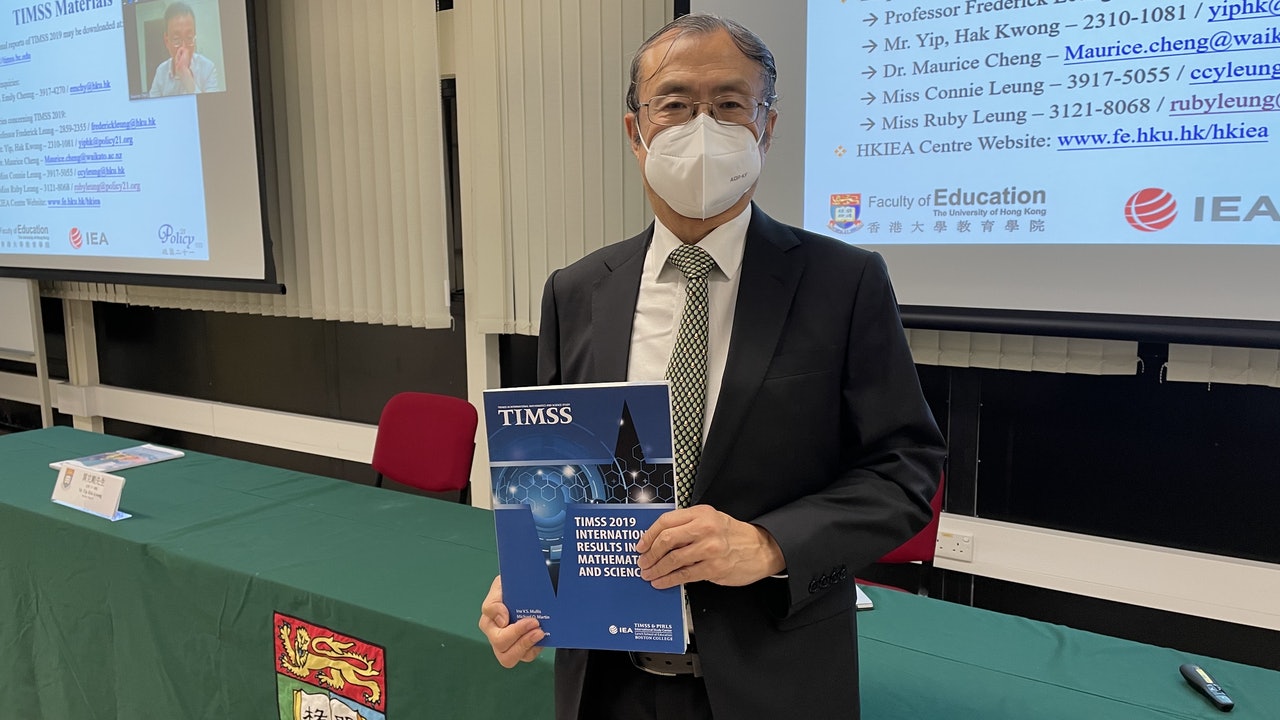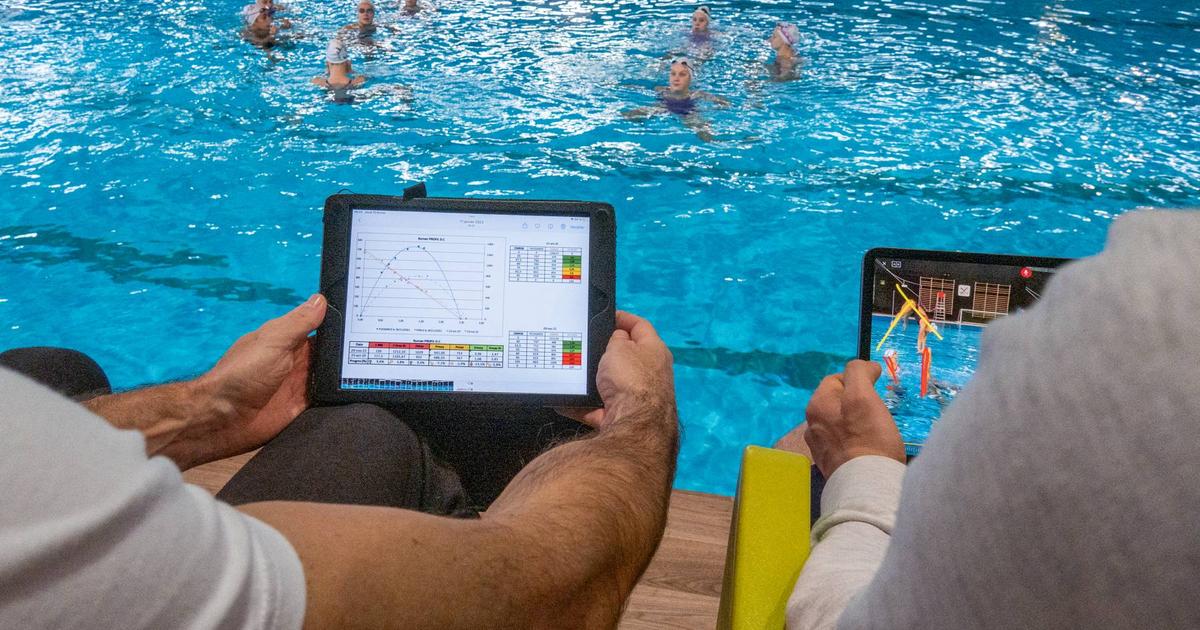Social News
Written by: Kuang Xiaobin
2020-12-08 20:18
Last update date: 2020-12-08 20:18
The International Trends in Mathematics and Science (TIMSS) is held every 4 years. The latest results of 2019 were announced today (8th). The mathematics performance of Hong Kong Primary Four students ranked second in the world; Secondary Two students ranked fifth in the world. The actual performance of the two was slightly lower than the previous session, but the overall results were similar.
However, in terms of scientific performance, Hong Kong’s primary four students ranked 15th in the world in science performance, which was 10 places behind the previous year; Secondary Two students ranked 17th in the world, which was 11 places backward from the previous year, with a test score of The lowest since the first test in 1995.
Researchers bluntly stated that the scientific performance of Hong Kong students is obviously inferior to previous studies, or it is related to the switch to electronic forms instead of paper-and-pencil tests.
Research project leader Liang Guancheng believes that it should be explored to increase students' interest in mathematics and science without affecting their grades.
(Photo by Kuang Xiaobin)
A total of 139 primary schools and 136 secondary schools in Hong Kong participated in TIMSS 2019. There were 2,968 Primary 4 students and 3,265 Secondary 2 students, respectively, participating in the computer test (eTIMSS) in response to the epidemic.
In terms of the scope of the math test, the categories of Primary Four include number, measurement and geometry, and data; Secondary Two includes number, algebra, geometry, and data and probability.
In terms of scientific testing, Primary 4 includes life sciences, natural sciences and earth sciences; Secondary 2 includes biology, chemistry, physics and earth sciences.
The two subject tests include three levels: knowledge, application and reasoning.
The local test was conducted in cooperation with the School of Education of the University of Hong Kong and the International Educational Achievement Assessment Association (IEA) from March 2019 to June of the same year.
In terms of mathematics test scores, Hong Kong's primary four students scored 602 points, ranking second in the world, which is slightly worse than the previous year's score in 2015.
38% of primary four students reached the highest international benchmark in mathematics, and nearly all primary four students reached the lowest benchmark.
Secondary two students scored 578 points, ranking fifth in the world, similar to the results of the past 5 years.
32% of secondary school students reached the highest benchmark in mathematics, and 96% reached the lowest benchmark.
Less than 10% of primary four students have reached the highest benchmark in science
In terms of scientific tests, the results of Hong Kong students this year have significantly deteriorated.
Primary four students scored 531 points, and the latest global ranking is only 15th. The relevant scores are down from the previous 4 sessions and only higher than the 508 points in the first test in 1995.
This year, only 8% of primary four students achieved the highest international benchmark in science, a significant decrease of 6% and 8% compared with 2007 and 2015.
Secondary two students only scored 504 points in this scientific test, which is the lowest level since the first test in 1995, and is ranked 17th globally.
9% of Secondary Two students’ scientific scores reached the highest international benchmark, similar to previous years, but only 85% of Secondary Two students’ scores reached the lowest benchmark, a drop of 10 percentage points from previous years. In other words, up to 15% of Secondary Two students failed Achieve results that meet the minimum benchmark.
Research project leader Liang Guancheng believes that students may be unfamiliar with this year's electronic test mode. Although mathematics performance has declined slightly, overall, Hong Kong students are still at a high level in this regard.
(Photo by Kuang Xiaobin)
Zheng Wenwei, deputy head of the research project and associate professor at the University of Waikato in New Zealand, said that he tried to explore the reasons for the decline in the students' scientific performance, but the science courses and class hours have not changed much in the past 4 years, and a satisfactory explanation has not been found after synthesis. Or reason.
He believes that this year's test adopts an electronic mode, which is different from the past, which may have an impact on Hong Kong students who are accustomed to using paper and pencil tests, but this factor is still not enough to explain the cause of the sharp drop in performance.
Research project leader and IEA chairman Liang Guancheng believes that students may be unfamiliar with the answering mode of this year. Although mathematics performance has slightly deteriorated, Hong Kong students are still at a high level in this regard.
A total of 139 primary schools and 136 secondary schools in Hong Kong participated in TIMSS 2019.
(Data Picture/Photo by Gao Zhongming)
Research data shows that, compared with students from other countries or regions, Hong Kong students have less positive attitudes towards mathematics and science. Secondary 2 students in particular have significantly lower self-confidence than international benchmarks.
Leung believes that the primary school curriculum has begun to be "unbound" this year, and teaching is relatively flexible, but the secondary school curriculum is still based on the Diploma of Secondary Education as the main goal, and the pressure may be greater; Hong Kong's teaching model is more serious than Western countries, and less enjoyable activities for learning may be self-confidence. The reason for the lower heart, he said: "The only goal of high grades? It should be explored to increase student interest without affecting grades."
In TIMSS 2019, 64 countries or regions and 8 regions participated in the test. A total of more than 580,000 primary 4 and secondary 2 students participated in the test, but the participating countries did not include Mainland China and India.
Research data shows that compared with students from other countries or regions, Hong Kong students have less positive attitudes towards mathematics and science.
(Profile picture)
The Education Bureau responded that the performance of Hong Kong students in previous TIMSS sessions has been up and down. The authorities will work closely with various stakeholders to carefully analyze the results of TIMSS 2019 and review and optimize relevant policies with reference to the successful experience of countries or regions with outstanding performance. And support measures to promote student learning, cultivate student interest, and enhance the effectiveness of learning and teaching, so as to maintain the international competitiveness of Hong Kong students.
International large-scale research TIMSS: Hong Kong's primary fourth students ranked second in the world in mathematics performance after Singapore
Teaching University Mathematics and ICT Curriculum Increases AI Elements Under Epidemic, Increases Online Classes, Increases the Competitiveness of Graduates
6 Hong Kong students won 3 silvers and 3 bronzes in the International Mathematical Olympiad, Yinghua, Sao Paulo Co-educational Schools
Online learning 60% of students find it difficult to "search" for math answers, Youth Association launches an online learning platform to help solve problems
01News
Scientific Research Science Education Bureau Education Primary Education




/cloudfront-eu-central-1.images.arcpublishing.com/prisa/3I74UEXLYRBBRPGPSGWNN6WXH4.jpg)








